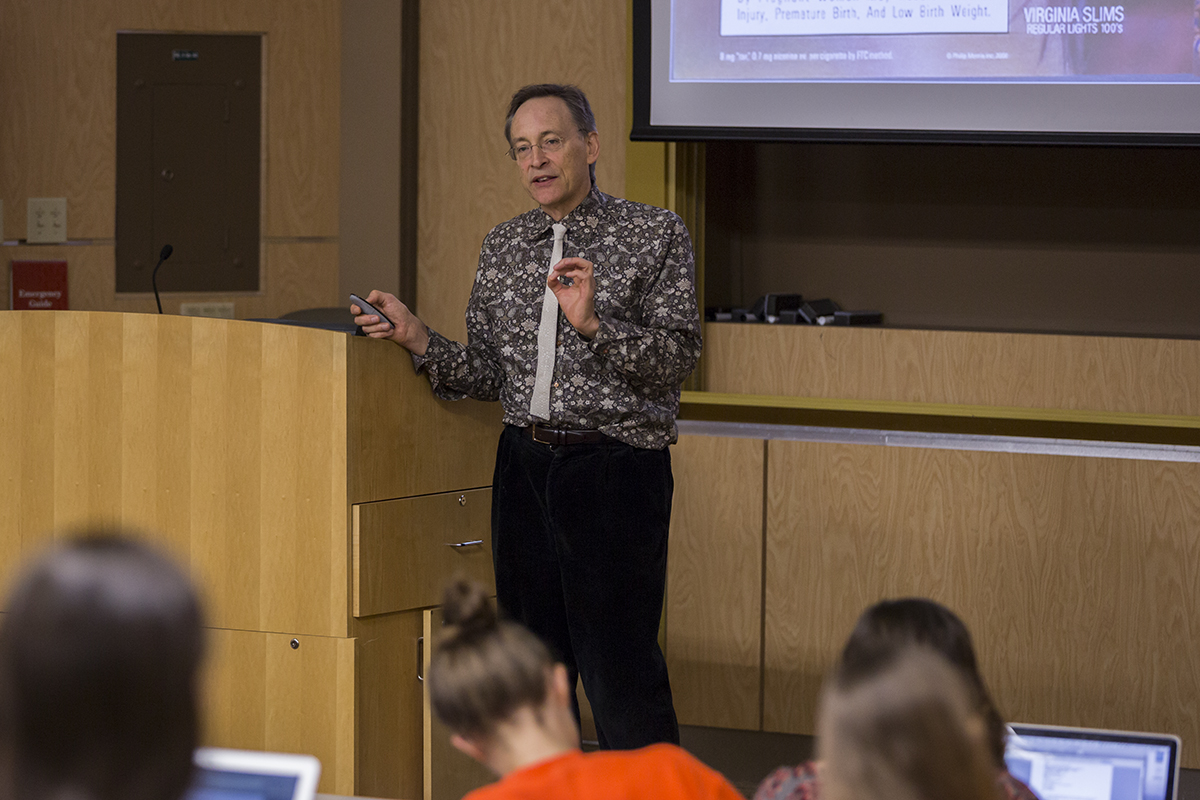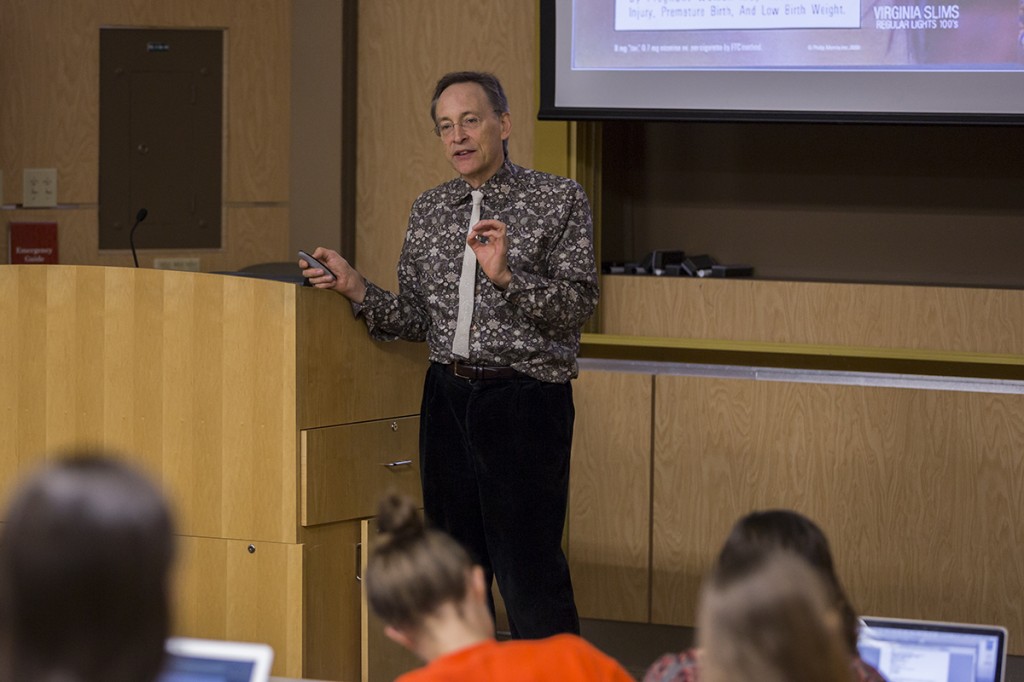

As students in Mary Lindemann’s Medicine and Society class settled down Wednesday morning, guest speaker Robert Proctor, a historian of medicine from Stanford University, cleared the air about abolishing cigarettes – for good.
During his lecture, Proctor said that the “freedom to smoke” is not really a freedom at all. He argues that addiction is contrary to freedom.
“To be addicted is to lose control over your fate and to lose the freedom not to smoke,” he said in an interview with The Miami Hurricane.
Proctor is visiting UM as a part of the Center for the Humanities 2014 Stanford Distinguished Professor Lecture Series. He came to Lindemann’s class to speak to the students, many of whom are on the pre-med track, about his research regarding the dangers of cigarettes. Proctor has written a book on the corporate practices of the tobacco industry, “Golden Holocaust,” and has appeared as an expert witness in trials against the industry, including at a recent trial in Miami.
Additionally, Proctor said that the tobacco industry works to incorporate cigarette smoking into everyday life and influence people to see the habit as “normal.”
Throughout his talk, he explored how product placement, advertising and even bribery in the form of donations make cigarettes a normal part of culture.
He cited multiple instances throughout the years when tobacco companies traded funding for silence, such as a $20 million donation to the American Medical Association (AMA) between 1964 and the 1970s.
He pointed out during the interview that even the government is drawn into tobacco sales through the money that tobacco taxes bring in. He refers to this draw as “the second addiction.”
“Governments throughout the world are addicted to the revenues from tobacco,” he said.
Lindemann along with students in the class felt Proctor had an refreshing take on the culture of smoking.
“Professor Proctor’s lecture offered a stimulating and incisive look at the ambiguities of scientific research, how it is affected by business politics, and the deep-seated corruption embodied by the production and sale of cigarettes,” Lindemann said.
Proctor’s talk opened the eyes of junior Tony Mina who attended the lecture.
“Before his presentation, I would have opposed making cigarettes illegal, not because I support them, but because I did not believe that banning them would solve the problem,” Mina said. “He explained, however, that, unlike users of other drugs, 90 percent of cigarette smokers wish they had never started smoking, and this fact would make a black market much more difficult to sustain.”
According to Proctor, the danger of cigarettes come down to the fact that they are “defective.” Rather than cigarettes being “inherently dangerous,” as, for example, operating an automobile is, the danger comes from their design. Cigarettes are designed in such a way that they can be inhaled into the lungs, which makes them different from other tobacco products, such as cigars, and therefore more addictive and deadly.
Though his ultimate solution is abolishing cigarettes, Proctor offered some solutions he thought should be put into place, including taxation, bans on ads, bans on campus smoking and even restructuring cigarettes so the smoke could no longer be inhaled.
“The point is not to eliminate the last smoker,” he said. “The point is to just reduce the harm as much as possible.”
He does, however, believe that smoking will eventually be eliminated.
“Every cigarette less that’s smoked every year is weakening their power,” he said of tobacco companies. “So when they sold 630 billion cigarettes in 1982 that was 630 billion units of power. Now, it’s down to 280 billion, they have 280 billion units of power. So, every billion that goes down is a lessening of their power.”
Proctor will be giving a lecture Thursday at 7 p.m. in CAS Gallery Wesley Center, on “The Origins of the Cigarette Catastrophe and the Case for Abolition.” He will also be having a lunch seminar with the Da Vinci scholars on Friday at 12:30 p.m.






